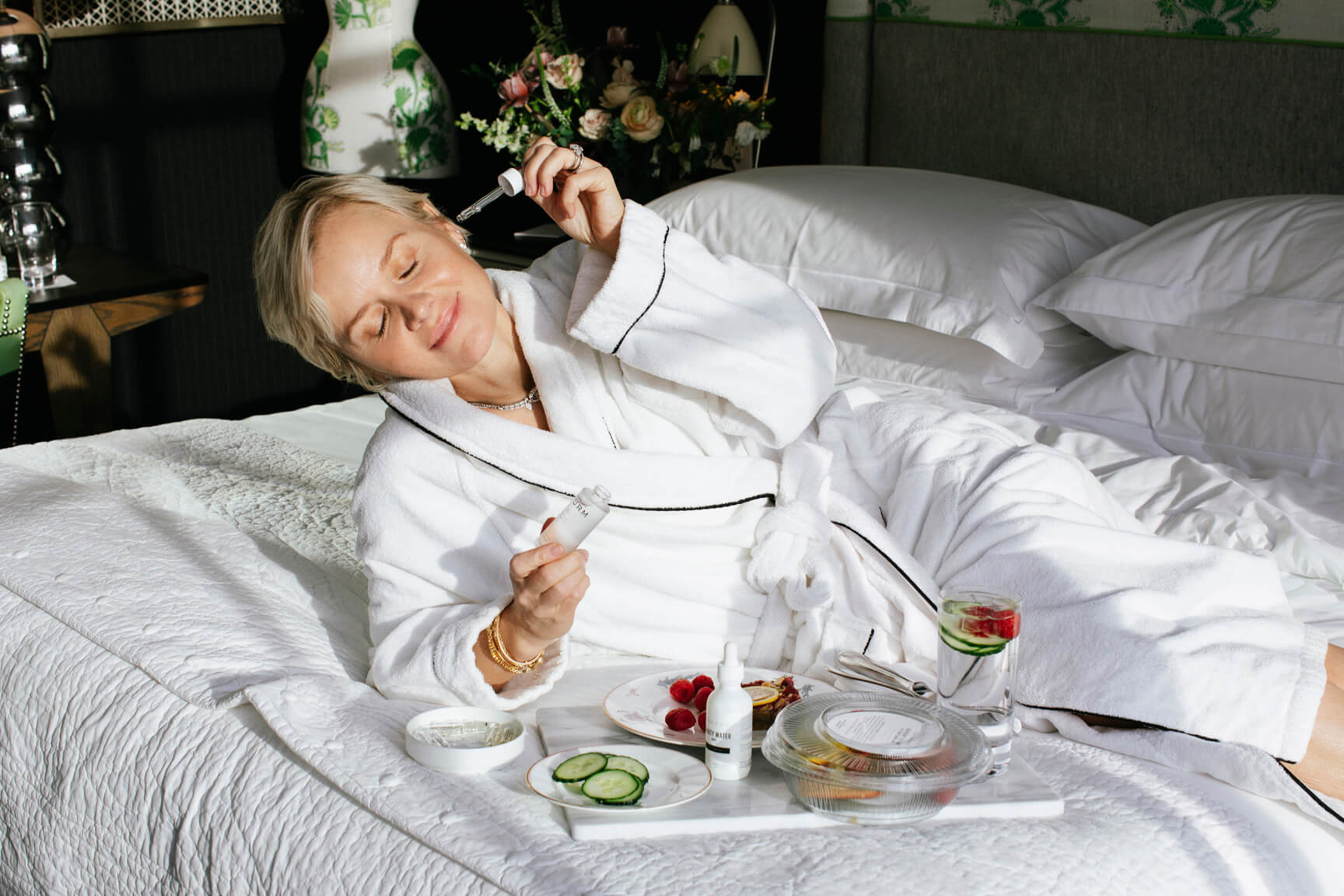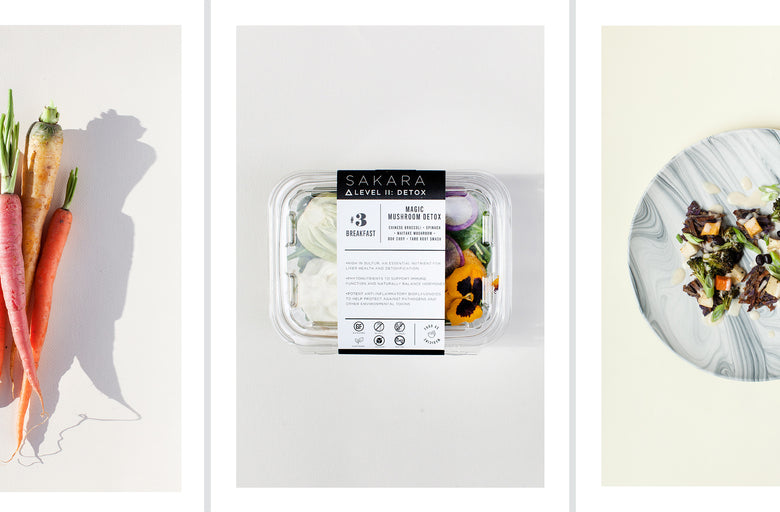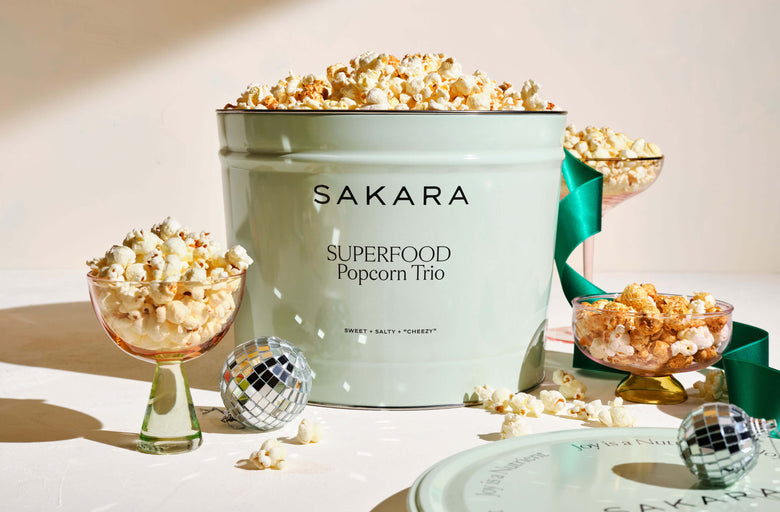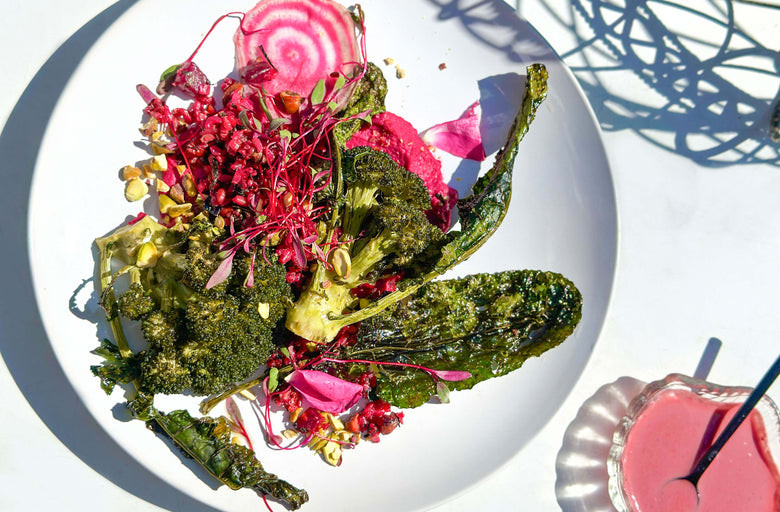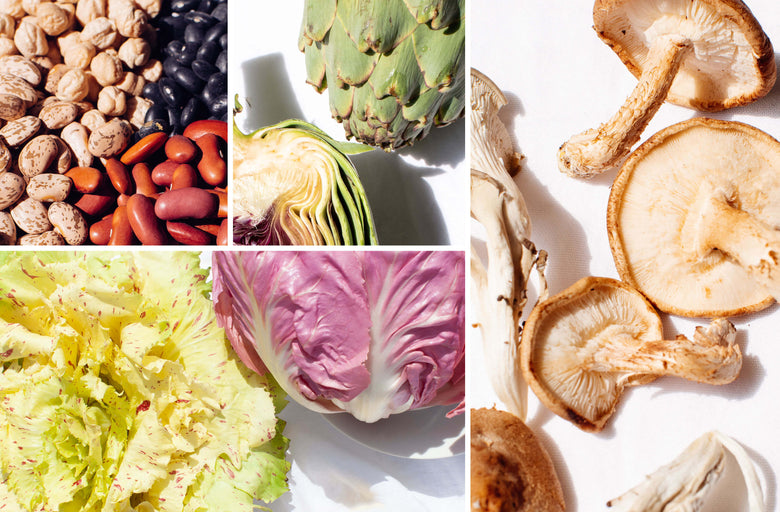
Dr. Barbara Sturm is a German aesthetics doctor and the Founder and CEO of Dr. Barbara Sturm Molecular Cosmetics. Her anti-inflammatory philosophy of healing the skin with advanced science ingredients has challenged both aggressive approaches and conventional wisdom.
Since launching her full skincare collection in 2014, Dr. Barbara Sturm has set herself apart through her science-first approach. At the core of her philosophy is the anti-inflammatory lifestyle she believes coaxes out the best glow for your skin and overall well-being. Instead of marketing speak, it’s about hardcore ingredient science and products that walk the walk. “You don’t put words on your face,” she says.
Sturm is a scientist first, and believes in empowering clients with education on how the microbiome works and its effect on our skin’s health and vitality. “Inflammatory triggers swirl around us our entire lives—pollution, sun exposure, smoking and drinking, stress, lack of sleep, and bad diet,” she says. “Inflammation is the ultimate skin killer, and as you age the damage shows more profoundly.” As we sit in the depths of winter, we spoke with Dr. Sturm about how the cold weather months rob our skin of much-needed moisture, and her favorite ways to replenish skin holistically.

What does dry or flaky skin in the winter or any time of year usually signify?
Skin becomes especially dry in the winter for several reasons. A cold climate prevents blood circulation to the outer layers of our skin, leading to damage at the cellular level. Insufficient blood supply adversely affects the functioning of the skin’s tissue and cells, slowing down sebum production, an important part of the lipid shield that protects our skin and keeps the surface smooth and even. In addition to cold air, our skin also faces a battle against dry heat which can worsen the skin condition even more and cause faster loss of valuable moisture. The result is depleted moisture reservoirs in deeper skin layers which manifest as dull, dry, irritated, and tired-looking skin.
What is the body’s first line of defense to prevent or treat dry skin?
Dry skin lacks surface lipids. These form a protective barrier on the skin to prevent water evaporation. Once this barrier is compromised, moisture levels in the deeper skin layers cannot hold as much water, and the natural upward flow of moisture into the upper layers of the skin is reduced, resulting in very dry skin. To prevent this, hydration is key. Combining lipid-rich moisturizers with a hyaluronic acid-based serum will provide your skin with an intense hydration boost and keep your complexion soft, healthy, and dewy. This increases the content of hydrolipids—the molecules on the upper layer of the skin which permit hydration—and also leaves a thin lipid layer on the skin’s surface, which reduces the evaporation of water from the skin. Hyaluronic Acid is also a powerful humectant. Look for a viscous, high concentration of blended low- and high-molecular-weight hyaluronic molecules that deeply hydrate your skin both superficially and at deeper skin layers. If you’re in extremely cold temperatures, choose a soothing, water-in-oil base that’s deeply hydrating and creates a protective shield against wind, cold and harsh winter climates. I also recommend using a gentle exfoliator twice a week to remove dry skin and create a perfect base for optimized absorption of active ingredients.
(Edit Note: We love Dr. Sturm’s Face Cream, Hyaluronic Serum, Ski Cream, and Enzyme Cleanser)
I love taking a milk bath...it’s an easy, DIY skin fix that costs about four dollars.
Why is an anti-inflammatory diet so key to premature cellular aging?
Diet is an essential factor in aging, health, and wellness. Diet influences a functioning skin barrier that protects against pathogens and a working immune system that protects you broadly. I recommend all of my clients follow an anti-inflammatory diet and approach all year round for both an immediate and long-term effect on skin aging and overall health. It includes minimizing alcohol, caffeine, sugar, processed and fried foods, white flour, other refined carbs, and corn or cooking oil while emphasizing omega-3s, colorful fruits and vegetables, olive oil, purslane, mushrooms, sweet potatoes, avocados, and almonds.
Any other rituals or practices you recommend for healthy skin in the winter?
In winter, I like to use a simple dehumidifier in my home and place it near my bed at night. I use it all-year-round really, but especially in the arid winter months. I also avoid products that contain dehydrating ingredients, such as mineral oils, fragrance, and alcohol, and aggressive ingredients and treatments like acids and harsh lasers that kill healthy skin cells and impair your natural skin barrier function. In colder months, I love taking a milk bath. They are full of nourishing vitamins and minerals; vitamin E, which is an antioxidant that helps support cell function and skin health, and zinc, which holds anti-inflammatory properties and is ideal for soothing and healing skin. Milk also contains lactic acid, which acts as a mild exfoliant and its fat and protein content nourishes and smooths adult skin as well babies and kids. I do it all the time. It’s an easy, DIY skin fix that costs about four dollars.
MORE LIT-FROM-WITHIN STORIES
